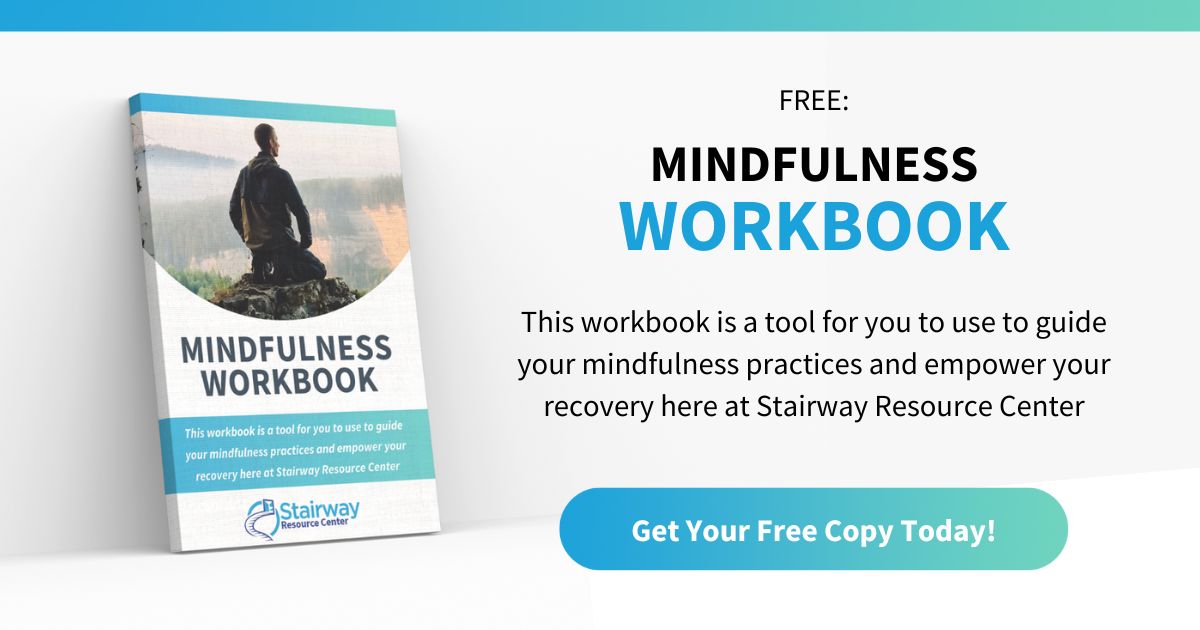Substance abuse is a very difficult road to navigate, and finding the pathway to sobriety is rarely easy. When you are struggling with active addiction or recently beginning your recovery journey, relapses and triggers can cause you to lose faith in your progress.
It’s important to remember that the journey towards sobriety is never linear, and these slip-ups are not indicative of your overall progress. Developing a set of skills, or a “mental tool box” of actions, mindful thinking patterns, and self-actualizing behaviors can help you begin the road towards long-term sobriety, and eventually, long-term recovery.
The Mental Tool Box and How It Helps Recovery
When dealing with any sort of mental health issue or neurodivergent diagnosis, developing a set of coping mechanisms and skills to deal with the negative side of these attributes is essential to coping with the resulting problems in a healthy way. When it comes to substance abuse, this is especially true. Creating a set of skills as a “mental tool box” as a way to help persevere through active addiction is key to recovery.
With this tool box, skills like de-escalation, coping with triggers, mindfulness activities, and general methods of mitigating any negative effects of your diagnosis become accessible to you for your use in your time of need. These skills are a primary component of cognitive behavioral therapy, which relies on the conscious efforts towards behavioral change made by the individual. American Psychological Association. (2017). What is Cognitive Behavioral Therapy? Clinical Practice Guideline for the Treatment of Posttraumatic Stress Disorder. APA Div. 12 (Society of Clinical Psychology) Retrieved May 5, 2022 from https://www.apa.org/ptsd-guideline/patients-and-families/cognitive-behavioral By applying these tools to treating substance use disorder (SUD), you can jump-start your long-term recovery timeline and establish important skills for reaching sobriety.
“Self-care is extremely critical when dealing with substance use.”
Steps to Beginning Long-Term Recovery
These eight steps are all key aspects of how to achieve long-term recovery. Taking the first steps on this journey is not only brave, it demonstrates your commitment to change. Cloutier, J., Mason, M. F., & Macrae, C. N. (2005). The perceptual determinants of person construal: reopening the social-cognitive toolbox. Journal of personality and social psychology, 88(6), 885. https://psycnet.apa.org/doi/10.1037/0022-3514.88.6.885
Establish Early Sobriety
The first step towards recovery is admitting that you have a substance abuse issue. When it comes to beginning your long-term recovery timeline, establishing your early-stage sobriety is crucial to creating a productive and healthy pathway towards recovery. Admitting that a substance has a hold over you is never easy, but it is crucial for establishing sobriety.
From this point forward, taking actions within your control to limit your access to substances with abuse potential is crucial for maintaining this sobriety. These actions begin with getting rid of any substance that triggers your addiction. It’s also important to dispose of any paraphernalia that can lead you out of sobriety or spur your addiction. Nicholls, E. (2021). Sober rebels or good consumer-citizens? Anti-consumption and the ‘enterprising self’ in early sobriety. Sociology, 55(4), 768-784. https://doi.org/10.1177%2F0038038520981837
Develop Your Support System
With any emotional journey as significant as establishing and maintaining recovery from addiction, one of the most crucial components is creating a strong support system of friends and family. During addiction, this support can be a critical tool to help you stay sober. Between providing words of affirmation during taxing episodes to being physically present to help deal with any withdrawal symptoms or the removal of substances from your home, your support network is crucial for recovery.
As part of your mental toolbox, your support network is there to offer you help on your journey towards recovery, and should be made up of people you love and trust that can help facilitate these changes. Some of the most common figures to include in your support network can include friends, family, romantic partners, and even other sober people or sponsors that can help you through a mutual understanding of your addiction struggles.
Practice Positive Coping Mechanisms

Part of developing your “mental tool box” concerning your addiction is establishing and practicing different coping mechanisms that can help you during addiction cravings or withdrawal periods. These are natural components of the long-term recovery timeline, and should not be discounted or regarded as negative or backwards progress. In fact, learning how to cope with these thoughts and feelings can improve your progress overall. In addition, the ability to recognize your own feelings and put these feelings into context can help reinforce your progress. In particular, try to assess where you feel you should be focusing more of your energy or time with your recovery goals in mind.
Coping mechanisms are not a “one size fits all” solution, so establishing which coping mechanisms work for you versus which do not feel right is crucial during this step. For some, cataloging your feelings or listing the pros and cons of a situation regarding how you feel may be helpful.
People with a more action-forward mindset might combat addiction cravings with exercise or physical activities that can bring you out of a headspace that’s focused on your addiction. Overall, finding which coping mechanism works for you is key to creating a healthy plan for your long-term recovery timeline. Laudet, A. B., Savage, R., & Mahmood, D. (2002). Pathways to long-term recovery: a preliminary investigation. Journal of psychoactive drugs, 34(3), 305–311. https://doi.org/10.1080/02791072.2002.10399968
Learn to Love and Care for Yourself

Self-care is extremely important in any aspect of your life. However, self-care is extremely critical when dealing with substance use. Between finding time to prioritize your mental health to encouraging different behaviors that can help you feel good about yourself, re-learning how to love and take care of yourself during your addiction recovery is the key to success.
In situations where your substance use can make you feel down on yourself or critical of your choices, it’s easy to feel like everything that’s happened is your own fault, lowering your self-esteem and sense of self love. The truth is, no one chooses to develop substance use disorder, and being critical of yourself during this already emotional time can stunt your recovery.
In combination with healthy coping mechanisms, doing positive things for yourself that you don’t normally seek in your everyday routine can help you begin to appreciate your body. By extension, these small self-care decisions can help you become more committed to recovery.
When you’re feeling down on yourself or overwhelmed with negative thoughts concerning your substance use, opening your tool box and using some self -are strategies can help combat these negative feelings. Going for a walk, getting a facial, or even getting in a good workout are all good ways to regain your sense of self love through the use of self care. Melemis, S. M. (2015). Focus: addiction: relapse prevention and the five rules of recovery. The Yale journal of biology and medicine, 88(3), 325. https://www.ncbi.nlm.nih.gov/pubmed/26339217
Identify Your Triggers and Plan How You’ll Deal With Them
One of the hardest parts of substance abuse recovery is facing and identifying your triggers. Through the course of your long-term recovery timeline, knowing what can lead you astray and how to avoid these things is crucial for your overall health. For example, if you have issues with alcohol use and know that big parties where alcohol will be served can trigger you and lead you off of your recovery path, pulling back from these social events can help you maintain your sobriety and continue your recovery journey. This is especially hard in circumstances when the social implications of pulling out of these events can lead others to act unsupportive or make you feel like you’re missing out. In reality, the people who care about you will definitely understand.
Recognizing and recording your triggers is also a big part of your mental toolbox of coping mechanisms, not just from an addiction standpoint but from a mental health standpoint. These cognitive steps towards limiting your access to different stimuli can overall benefit your mental well-being. In a stressful process like pursuing addiction recovery, being able to limit your stressors and create a more comfortable journey you can continue pursuing is key to reaching recovery. Weerasinghe, S., & Bartone, S. (2016). Mindfulness for addiction recovery: A cognitive disciplinary preventive approach to avoid relapse into substance abuse. Journal of Basic and Applied Sciences, 12, 81-91. Retrieved May 5, 2022, from https://pdfs.semanticscholar.org/2d9b/bf66bffa7a7d40dd28f4149e2a4ce1528b8b.pdf
Maintain Regular Routine Schedules
Creating and establishing healthy routines for recovery is a big part of creating a stable, productive schedule that can help decrease substance cravings and triggers. Incorporate a steady routine into your daily life that includes different parts of your mental tool box like self-care and coping mechanisms. In this way, you can start to actively combat and fight old habits concerning your substance use and developing your life beyond dependency.
For example, if you like to use physical activity to aid in suppressing your substance cravings, try including a brief workout or run into your morning routine. Similarly, if you frame cooking yourself a wholesome meal as a form of self-care, choosing a night in your weekly routine for a big or fancy dinner could be a helpful part of establishing a positive routine aimed at keeping you on your long-term recovery timeline. Jarvis, M., Williams, J., Hurford, M., Lindsay, D., Lincoln, P., Giles, L., … & Safarian, T. (2017). Appropriate use of drug testing in clinical addiction medicine. Journal of addiction medicine, 11(3), 163-173. https://doi.org/10.1097/adm.0000000000000323
Practice Mindfulness
Mindfulness is key to keeping yourself grounded when going through any period of change. In terms of substance abuse, practicing mindfulness is one of the best methods of achieving long-term recovery. The key to mindfulness is creating balance and harmony in your life, either through actively combating your addiction or using a combination of skills in your mental tool box to help you through situations that could test your sobriety. Mindfulness includes understanding the root of addiction.
Mindfulness is often hallmarked by meditation and inward reflection, but other forms of mindfulness activities can range from art therapy to yoga. The most important way to encourage mindfulness within yourself is experiencing many mindfulness tactics and establishing which avenue works. Once added into your routines as a step towards recovery, you’re sure to find that mindfulness is a healthy and effective way to address any issues causing setbacks in your progress. Garland, E. L., & Howard, M. O. (2018). Mindfulness-based treatment of addiction: current state of the field and envisioning the next wave of research. Addiction science & clinical practice, 13(1), 1-14. Retrieved May 5, 2022, from https://ascpjournal.biomedcentral.com/articles/10.1186/s13722-018-0115-3
Stay Connected to Your Recovery Community

One of the best ways to reinforce your journey towards recovery is establishing a network of peers that can help you. The best of these peers will become a support system based on their own personal experiences with addiction. With general healthcare issues, it’s best to talk to a specialist as opposed to someone in a different medical field—substance use recovery works in the same way.
Getting to know other people on their journey through recovery can help you develop more skills for your mental tool box, as well as help provide a sympathetic ear or shoulder to cry on during rough times. When you establish a network of people who thoroughly understand the experience of addiction, admitting any slip-ups or lapses in sobriety can be understood, not judged. These crucial perspectives can help you get back on track.
Seek Help for Substance Use Disorder (SUD)
Substance use is notoriously difficult to deal with, but recovery is within your reach. After receiving comprehensive care aimed at helping you begin your recovery timeline, it is essential to begin creating a community to support you in your time of need. Then, with the right set of tools, you can sustain your recovery journey to last you in the long term.


